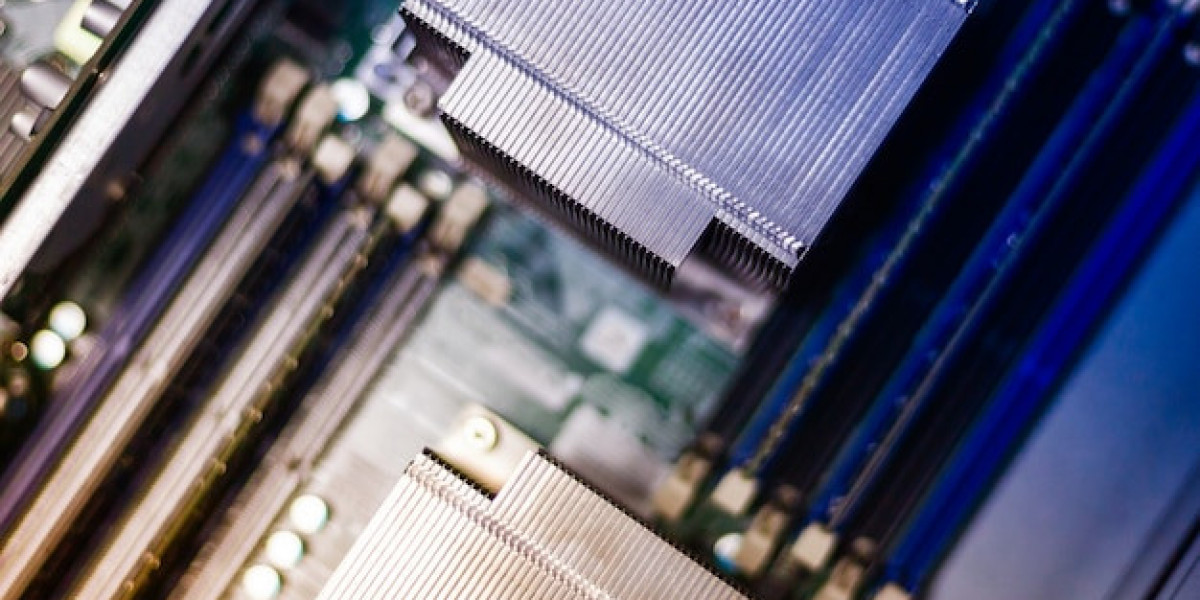Processors are at the core of any server system in the world of IT hardware. All of the computing duties that a server must carry out are managed by the processor, or CPU, which also runs applications and processes massive volumes of data. When it comes to server performance and dependability, the processor type you choose has a significant impact on how well your server will function.
Upgrading the server processor can have a significant impact on people who want to maximize the performance of their server. The Intel Xeon series is among the most well-liked and potent options for server CPU upgrades. Intel Xeon processors are a popular option for small-to-medium-sized enterprises as well as enterprise-level data centers due to its exceptional performance, scalability, and dependability.
The significance of server processor upgrades, the reasons Xeon processors are the industry standard for servers, and factors to take into account when organizing a server hardware upgrade will all be covered in this extensive guide.
Recognizing the Function of Server Processors
A server processor is in charge of carrying out commands and overseeing the server's general operation. The CPU makes sure that every operation is completed quickly and effectively, whether you're managing enterprise databases, hosting virtual machines, or using cloud services.
The following are some of the main roles of server processors:
Data Processing: The CPU is an essential part of database administration and web hosting since it manages data-intensive processes like transaction management, query processing, and application execution.
Multitasking: Servers must frequently execute several programs or provide services to a large number of customers at once. These tasks can be performed without lag or slowdown by a high-performance server CPU.
Virtualization: To run several operating systems on a single server, many companies employ virtualization. The higher demands of virtualized systems are intended to be handled by sophisticated CPUs, such as the Intel Xeon.
Power Efficiency: The energy-efficient design of modern server processors helps lower your data center's overall power usage while preserving peak performance.
Modern enterprise environments require faster data processing rates, higher multitasking capabilities, and more efficient power consumption, all of which may be achieved by upgrading your server processor.
Why Upgrade Your Server Using Xeon Processors?
For a number of reasons, Intel Xeon processors are a top option when it comes to server CPU upgrades. With capabilities that make them perfect for demanding tasks, Xeon processors were created especially for server and data center applications.
Xeon CPUs are regarded as the best option for server upgrades for the following reasons:
1. Performance and Scalability
The capacity of Xeon processors to grow with your server's requirements is one of their greatest benefits. Xeon processors are capable of handling workloads of all sizes, whether you're managing a huge data center or a small business server. They can run numerous apps at once without experiencing performance reduction since they are designed to handle multi-core and multi-thread processing.
Additionally, Xeon processors have Hyper-Threading Technology, which doubles the number of concurrent tasks that can be handled by enabling each CPU core to manage two threads simultaneously. Large-scale data analysis, database administration, and virtualization all benefit greatly from this.
2. Improved Stability and Dependability
Processors that can provide consistent performance over long periods of time are necessary for server environments. With support for Error-Correcting Code (ECC) memory, Xeon processors are built to be dependable. In order to keep your server stable and lower the possibility of system crashes brought on by memory faults, ECC memory assists in the real-time detection and correction of data corruption errors.
For companies that need constant uptime and cannot afford the chance of data loss or outage, this degree of stability is essential.
3. Support for Advanced Virtualization
Many businesses are using a single physical server to run many virtual machines as a result of the growth of cloud computing and virtualized environments. Intel Virtualization Technology (VT-x), which is built into Xeon processors, optimizes the server's resource allocation between virtual machines, hence enhancing the performance of virtualized applications.
Data centers and IT departments that depend on virtualization to lower expenses and boost hardware efficiency will find this technology particularly helpful.
4. Efficiency in Power Usage
Energy efficiency is a crucial consideration when selecting a CPU because data centers frequently operate around the clock. Performance and low power consumption are balanced with Xeon processors, which are designed for power efficiency. This results in a more controllable thermal environment in the data center by lowering the heat output of your computers and lowering energy expenses.
Businesses seeking to maximize both processing power and operating expenses frequently use Intel's Xeon Scalable processors because they provide a balance between performance and energy efficiency.
5. Support for Large Memory Capacities
In order to manage enormous data sets and sophisticated applications, servers frequently need a lot of memory. Servers can expand up to hundreds of gigabytes or even terabytes of RAM because to Xeon processors' ability to support large memory capacities and quick memory access.
Xeon processors' support for DDR4/DDR5 and Intel Optane memory allows for faster data retrieval, which enhances application performance, lowers latency, and guarantees seamless operation even under demanding workloads.
Key Factors to Consider When Upgrading to Xeon Processors
Selecting the ideal Xeon processor for your requirements is crucial if you're thinking about upgrading your server's processor. The following are some crucial elements to take into account:
1. Workload Requirements
Understanding the type of workloads your server will handle is crucial when selecting a Xeon processor. For general-purpose servers, a Xeon processor with fewer cores may be sufficient. However, if your server will be used for high-performance computing (HPC), virtualization, or large-scale data processing, you’ll need a processor with more cores and higher clock speeds.
Intel’s Xeon Scalable Processors are available in different performance tiers, making it easier to find the right option for your specific workload.
2. Number of CPU Cores
The number of cores in Xeon processors varies; higher-end variants usually have about 28 cores or more. The server can manage more concurrent operations with more cores, which is perfect for databases, virtualization, and multi-threaded applications.
A multi-core Xeon processor is essential for servers handling numerous virtual machines or running demanding applications.
3. Clock Speed
Clock speed, which is expressed in GHz, affects server performance in addition to core count. Processing times are accelerated by increased clock speeds since each core can carry out more instructions per second. To get the best performance for your particular requirements, it's critical to balance clock speed and core count when selecting a Xeon processor.
4. Memory Compatibility
ECC memory and DDR4 or DDR5 RAM are just two of the many memory options that Xeon processors handle. Verify that the memory modules you intend to use are compatible with the CPU you have selected. Support for ECC memory is especially crucial in server contexts where system stability and data integrity are vital.
5. Future-Proofing
Since server gear is a long-term investment, selecting a CPU that can manage increasing workloads as your company expands is crucial. Think about choosing Xeon processors that offer expandability features like support for more memory, storage, or networking.
Benefits of Upgrading to Xeon Processors
Adding an Intel Xeon CPU to your server can improve your IT infrastructure in a number of ways.
Enhanced Processing Power: Xeon processors greatly increase your server's computational capacity by utilizing multi-core architecture and Hyper-Threading, which enables it to manage multiple tasks at once.
Improved System Stability: Your server will operate dependably thanks to ECC memory support and sophisticated error correction, which lowers the possibility of crashes or corrupted data.
Optimized Virtualization: Xeon processors are perfect for companies that operate several virtual machines on a single server since they are built to manage virtualized environments effectively.
Energy Efficiency: Xeon processors contribute to reduced operating costs and enhanced sustainability in data centers by lowering power consumption without compromising performance.
Conclusion:
One of the best methods to increase the performance, reliability, and scalability of your server is to upgrade its CPUs to Intel Xeon. Xeon processors are the best option for companies wishing to optimize their server infrastructure because of its sophisticated features, energy economy, and capacity to manage demanding workloads.
To choose the Xeon processor that best suits your needs, take into account your unique workload requirements, memory compatibility, and future growth while organizing your next server processor update. You can make sure your IT infrastructure is prepared to support your company for many years to come by making an investment in a server with Xeon processors.









